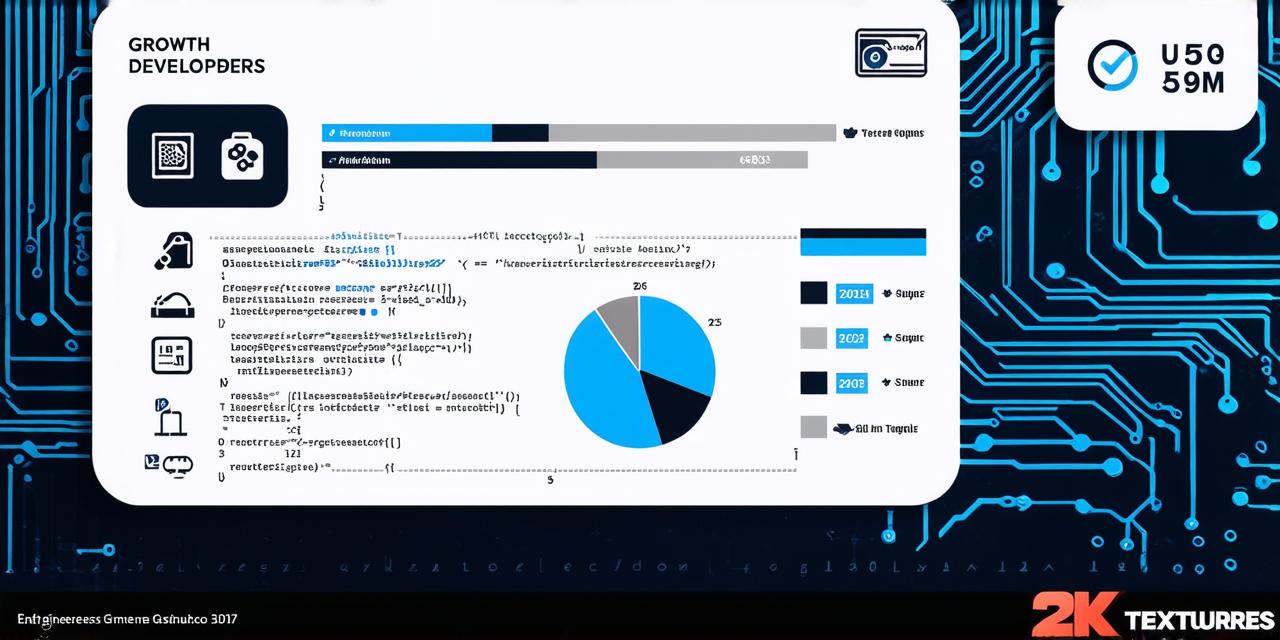Introduction
The gaming industry has grown tremendously over the past decade, and video game developers play a crucial role in its success. As creators of immersive worlds and engaging characters, they have the power to captivate players for hours on end. However, the process of creating a successful video game is far more complex than just designing cool graphics or writing interesting stories. In this article, we will explore what video game developers do and how they contribute to the gaming industry.
1. The Role of Video Game Developers
Video game developers are responsible for creating the content and mechanics that make up a game. They work in teams, collaborating with other professionals such as artists, writers, and producers, to bring their ideas to life. Some of the key tasks that video game developers do include:
- Designing gameplay mechanics: Video game developers design the rules and systems that govern how players interact with the game world. This can include anything from movement controls and combat systems to puzzles and mini-games.
- Writing code: Developers write the code that powers the game, bringing their designs to life on screen. They use programming languages like C++, C, and Java to create everything from character animations to AI behaviors.
- Creating assets: Video game developers also create the visual and auditory elements of the game, such as characters, environments, and sound effects. They use software tools like 3D modeling and animation software to bring their ideas to life.
1. The Creative Process
Creating a video game is an iterative process that involves many different stages. Here’s an overview of what the creative process looks like for video game developers:

- Conceptualization: This is the initial stage of game development, where the team brainstorms ideas and creates a rough outline of the game’s story, mechanics, and themes.
- Pre-production: In this stage, the team fleshes out their ideas and creates detailed designs for the game’s art assets, character models, and gameplay systems. They also write scripts and create storyboards to guide the development process.
- Production: During production, developers write code, create assets, and integrate all of the various elements of the game. This is also the stage where the team tests and iterates on the game, making changes based on feedback from playtesters and other stakeholders.
- Post-production: After the game is complete, it goes through a series of testing and quality assurance processes to ensure that it’s bug-free and ready for release. The team also creates marketing materials and prepares for the game’s launch.
1. Challenges and Rewards
Video game development can be a challenging and rewarding career. Some of the key challenges that developers face include:
- Technical difficulties: Writing code and creating assets can be complex, and bugs and other technical issues can crop up at any stage of the development process. Developers need to be skilled problem-solvers and able to troubleshoot issues as they arise.
- Creative differences: Game development involves many different people with different ideas and opinions, which can sometimes lead to creative conflicts. Developers need to be able to communicate effectively and find common ground with their teammates.
- Time management: Game development is a time-consuming process, and developers often work long hours to meet deadlines. They need to be able to manage their time effectively and prioritize tasks to ensure that the project stays on track.
1. Real-Life Examples
There are many successful video game developers who have made significant contributions to the gaming industry. Here are a few examples:
- Shigeru Miyamoto: Miyamoto is a legendary video game designer best known for creating the Super Mario franchise. He has been credited with popularizing platform games and has won numerous awards for his work.
- Clifford Stern: Stern is the co-founder of Activision, one of the largest video game publishers in the world. Under his leadership, Activision has released countless hit games, including Call of Duty and Guitar Hero.
- Tim Sweeney: Sweeney is the founder and CEO of Epic Games, the company behind the popular Unreal Engine. He has also been a vocal advocate for open source software and has made significant contributions to the development of Linux.




